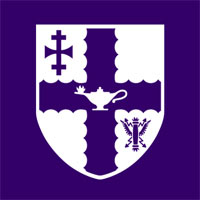fees waived
Computer and Electronic Engineering, BEng (Hons)
Loughborough University, United Kingdom
Ranking in UK
General Engineering
Automation and Control
Telecommunication Engineering
Costs
food & rent S$18.5k / year
Entry requirements
Scholarships
9 available
More than 50 available
Unlimited quantity
Limited quantity
Limited quantity
Information
Code
Code
Intakes
Website (External)
Programmes
Information
Duration
2029
Computer and Electronic Engineering equips students to integrate digital electronics, microprocessors, and software for developing embedded computer systems. These systems, found in devices like mobile phones, game consoles, and traffic lights, are typically dedicated, compact, and energy-efficient components of larger electromechanical setups. They rely on microprocessors, microcontrollers, and sensors, with engineers designing the hardware, firmware, and software. The curriculum is grounded in digital electronics and electrical engineering, supplemented by topics such as computer architecture, programming, embedded software, FPGA design, digital interfacing, and control theory. All systems adhere to Moore's Law, continually advancing opportunities for application management.The BEng and MEng programs share core engineering, electrical science, and programming modules in the first two years, emphasizing industrial problem-solving. The MEng diverges in years three and four, offering deeper specialization, plus additional business management and advanced design modules. High-performing BEng students may transfer to MEng. Assessment combines coursework and exams, with projects involving reports and presentations; coursework constitutes 30-50% of evaluations. The course is accredited by the Institution of Engineering and Technology and the Institute of Measurement and Control, ensuring industry recognition.
A local representative of Loughborough University in Singapore is available online to assist you with enquiries about this course.

